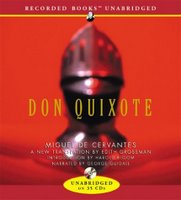Doing Battle with Tom Jones, Part 1
 So this sounded like a fun idea: read all the novels in The Guardian's 100 Greatest of All Time list. And all was well until Henry Fielding fell in my lap.
So this sounded like a fun idea: read all the novels in The Guardian's 100 Greatest of All Time list. And all was well until Henry Fielding fell in my lap.The notion came to me as I was finishing up A.J. Jacobs' fairly silly book, The Know It All: One Man's Humble Quest to Become the Smartest Guy in the World. Jacobs decides to read the entire Encyclopedia Britannica while writing a smart-alecky (although mostly entertaining) book about the venture.
But I liked the idea of choosing a lofty, personally-enriching goal and taking the journey to achieve it. I love novels, and my formal education missed a lot of spots in the complete history of the form, so I decided to pursue an extensive reading list. Why The Guardian's top 100? It seemed the most varied and complete — and it was the first one I looked at.
I decided to make a serious go at the list, but I did accept some concessions. For instance, there was big trouble at number 1: Don Quixote. In addition to its wieldy length, my research revealed that Cervantes' grand experiment with this emerging form was a lot more valuable in concept than execution. Instead of reading it, then, I ordered up the unabridged CDs from the library. One of the legends of audiobook narration, George Guidell, was at the microphone, so I knew I would be in capable hands.
George's voice and I have shared many a commute together, but Quixote provided a listening challenge unlike any other I'd faced. Guidell gives it all he has, but the material finally becomes too oppressive even for him to overcome. Plodding would be a kind word for the pace this book achieves at about its one-quarter point . . . the signpost at which I declared, "Okay, I get it!" and ejected CD #9 from the deck.
 I realize that giving up on the first book of the list was not the best sign for completing the remainer of the task, but I actually would have been quite surprised if I had endured all 40 CDs of the narration, so my disappointment was tempered with realism. I believe it was Faulkner who claimed to have reread Quixote every year, which explains plenty (As I Lay Dying lurks as a landmine at #52 on the list). Another Cervantes devotee was Henry Fielding . . . but more on him and his evil deeds later.
I realize that giving up on the first book of the list was not the best sign for completing the remainer of the task, but I actually would have been quite surprised if I had endured all 40 CDs of the narration, so my disappointment was tempered with realism. I believe it was Faulkner who claimed to have reread Quixote every year, which explains plenty (As I Lay Dying lurks as a landmine at #52 on the list). Another Cervantes devotee was Henry Fielding . . . but more on him and his evil deeds later.The next three entries on the list: Bunyan's Pilgrim's Progress, Defoe's Robinson Crusoe, and Swift's Gulliver's Travels were elementary and action-packed in comparison to Cervantes. Robinson Crusoe, the only true "novel" of that group, was an incredible surprise: not only was the writing very modern in tone, Defoe creates moods of suspense, fear, desperation, and joy that are unforgettable.
Surprised and energized by blowing through three books in just a few weeks, I picked up the doorstop that is Tom Jones on October 15, 2005 with a high degree of anticipation and confidence. I was already looking forward on the list and anticipating knocking out the first ten titles by the New Year.
If this blog were accompanied by a laugh track, guffaws would be inserted here.

0 Comments:
Post a Comment
<< Home